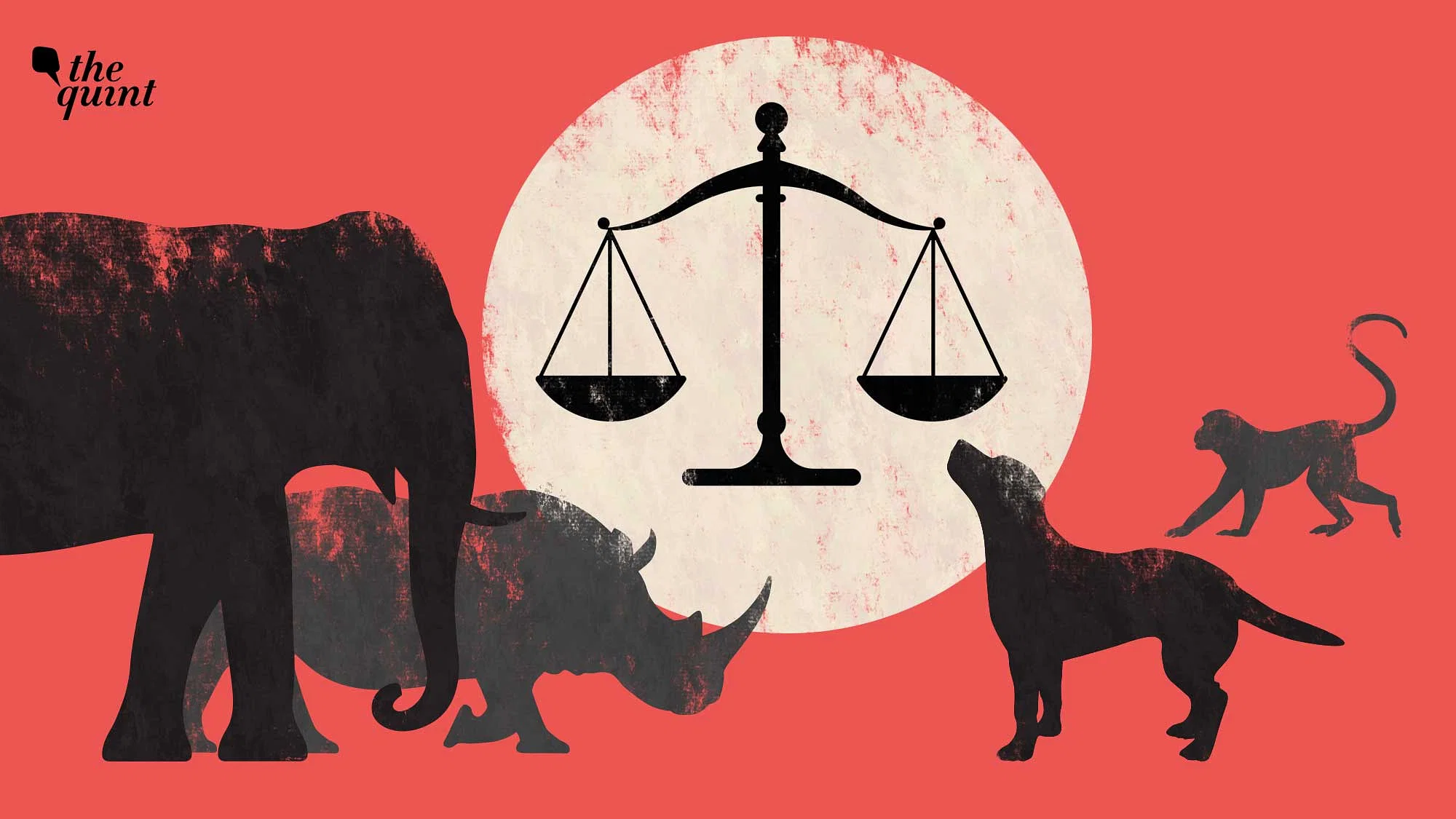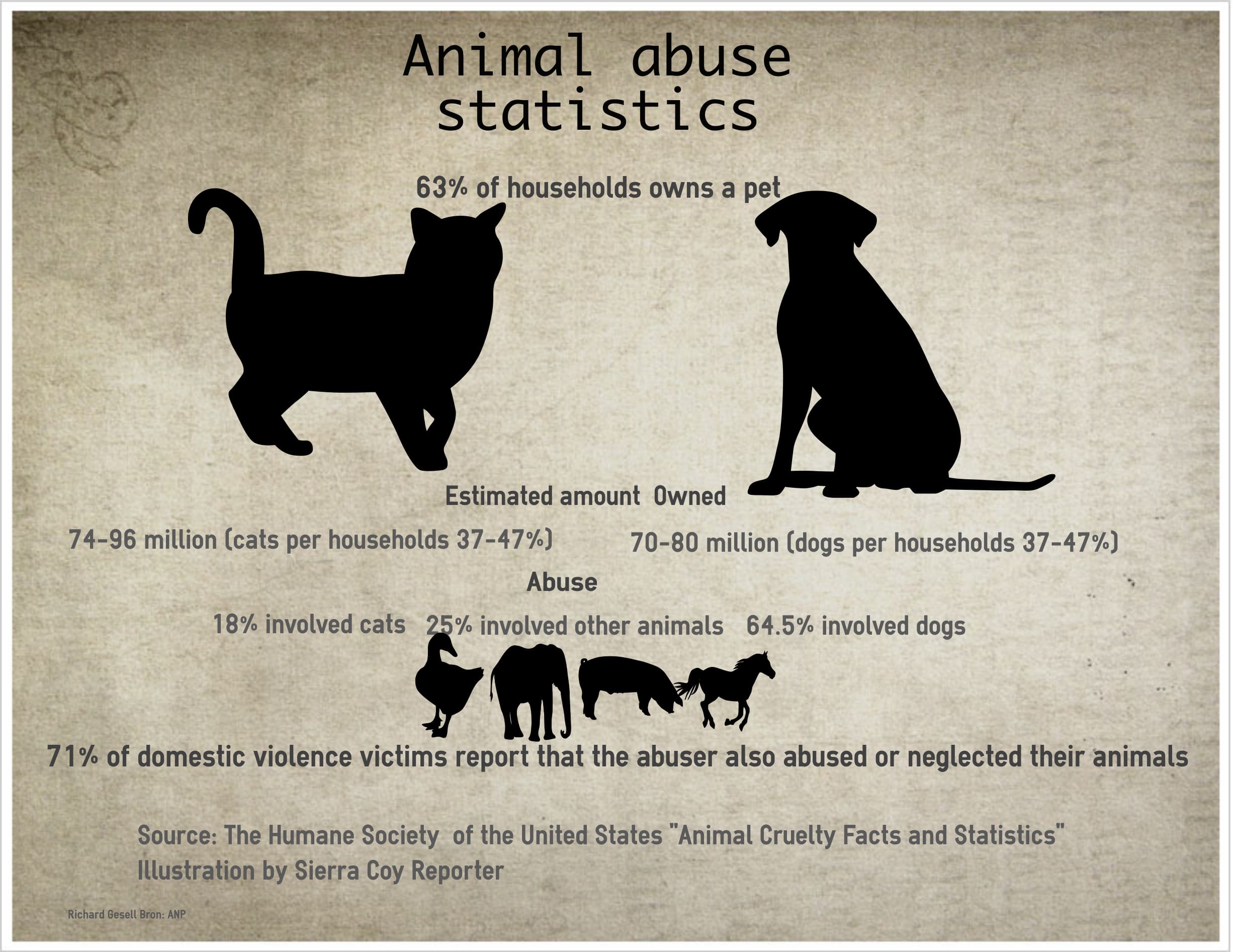Animal cruelty remains a pressing issue, shedding light on humanity’s responsibilities towards the welfare of animals and the urgent need for legal and ethical accountability. From isolated acts of abuse to systemic neglect in industries, these cases challenge societies to confront how animals are treated as sentient beings. As laws evolve and public awareness grows, addressing animal cruelty requires a multifaceted approach—strengthening legislation, ensuring fair enforcement, promoting education, and advocating for stricter penalties. This article examines the complexities surrounding animal cruelty cases while highlighting the collective steps needed to build a more compassionate society that prioritises justice and respect for all living creatures
Animal cruelty is a pervasive issue that continues to plague our society, with countless innocent creatures falling victim to unimaginable acts of violence and neglect. From large-scale commercial operations to individual instances of abuse, animal cruelty cases have become a growing concern for lawmakers, animal welfare advocates, and the general public. While there are laws in place to protect animals from mistreatment, the legal and ethical implications of these cases are complex and often raise questions about the treatment of animals as sentient beings. As such, it is crucial to understand the legal framework surrounding animal cruelty and the ethical considerations that come into play when seeking justice for these innocent victims. In this article, we will delve into the legal and ethical implications of animal cruelty cases and examine the challenges faced by legal systems and society as a whole in addressing this pressing issue. We will also explore the impact of animal cruelty on both the victims and perpetrators and discuss potential solutions for preventing and addressing these heinous acts. By shedding light on this critical issue, we hope to promote a deeper understanding of the gravity of animal cruelty cases and the need for a more compassionate and ethical approach towards our treatment of animals.
Understanding the laws surrounding animal cruelty
Animal cruelty is a serious offense that not only reflects a disregard for the well-being of animals but also poses ethical and legal consequences. It is essential to have a comprehensive understanding of the laws surrounding animal cruelty to ensure the protection and welfare of animals. In many jurisdictions, there are specific statutes that define and prohibit various forms of animal abuse, ranging from physical harm to neglect and abandonment. These laws vary from state to state and country to country, making it crucial for individuals working within the legal system, including law enforcement officials, prosecutors, and animal welfare advocates, to familiarize themselves with the specific regulations and enforcement mechanisms in their respective jurisdictions. By understanding the laws surrounding animal cruelty, we can work towards effective prevention, prosecution, and deterrence of these heinous acts, ultimately promoting a more compassionate society that values and protects the rights of all living beings.

The consequences for animal abusers
The consequences for individuals found guilty of animal cruelty can be significant, both from a legal and societal standpoint. In many jurisdictions, animal cruelty is considered a criminal offense, punishable by fines, probation, and even imprisonment. The severity of the punishment depends on the nature and extent of the cruelty inflicted upon the animal. Additionally, individuals convicted of animal cruelty may face a range of legal repercussions, including being prohibited from owning or working with animals in the future. Beyond the legal consequences, animal abusers often face harsh public scrutiny and reputational damage, as society increasingly recognizes the importance of animal welfare. This can result in social ostracization, loss of employment opportunities, and damage to personal relationships. Moreover, the emotional and psychological toll of the guilt and remorse associated with animal cruelty can have long-lasting effects on the mental well-being of the perpetrators. Overall, the consequences for animal abusers extend far beyond legal penalties, serving as a deterrent and a reminder of the importance of treating animals with compassion and respect.
Ethical considerations in prosecuting cases.
When considering the ethical implications of prosecuting animal cruelty cases, it is essential to strike a balance between the pursuit of justice and the preservation of individual rights. One primary ethical consideration is the need for fair and impartial investigations and trials. This entails gathering and presenting evidence in an objective manner, ensuring that the accused receives proper legal representation, and avoiding any biases that may compromise the integrity of the process. Additionally, prosecutors must navigate the ethical dilemma of weighing the severity of the offense against the potential harm caused by imposing punitive measures on the offender. This requires careful evaluation of rehabilitation options, such as counseling or education programs, to address the underlying causes of animal cruelty and promote personal growth and accountability. Furthermore, ethical considerations extend to the protection of vulnerable witnesses, including animals, who may require special provisions for their safety and well-being during legal proceedings. By prioritizing these ethical considerations, the justice system can uphold its principles while fostering a society that values compassion and respect for all living creatures.

The role of animal welfare organizations
Animal welfare organizations play a crucial role in the legal and ethical implications of animal cruelty cases. These organizations serve as advocates for the well-being of animals, working tirelessly to prevent and address instances of cruelty and abuse. They often collaborate with law enforcement agencies, providing valuable resources and expertise in investigating and documenting cases of animal cruelty. Additionally, animal welfare organizations offer support and assistance to both the victims and the offenders, seeking to find the best possible outcome for all parties involved. Through education and outreach programs, they aim to raise awareness about animal welfare issues and promote responsible and compassionate treatment of animals. By actively engaging in the legal process, these organizations help ensure that justice is served and that the rights and interests of animals are upheld. Their work not only helps protect animals from harm but also fosters a society that values and respects the welfare of all living beings.

The impact on the community
Community-wide impact is a significant outcome resulting from the legal and ethical implications of animal cruelty cases. When animal cruelty is addressed and perpetrators are held accountable, it sends a powerful message that such actions will not be tolerated. This creates a safer and more compassionate community for both humans and animals. By actively addressing and preventing animal cruelty, communities can experience reduced crime rates, as studies have shown a correlation between animal abuse and violence towards humans. Additionally, the presence of strong animal welfare laws and organizations fosters a sense of empathy and responsibility towards animals, promoting a culture of kindness and respect. This not only benefits the well-being of animals but also enhances the overall quality of life within the community.
Challenges in obtaining evidence
Obtaining evidence in animal cruelty cases presents numerous challenges that can hinder the successful prosecution of offenders. One primary challenge is the lack of witnesses willing to come forward or testify due to fear, intimidation, or a lack of understanding of the legal process. Animals themselves cannot provide testimony, making it crucial to rely on physical evidence, such as photographs, videos, or veterinary reports. However, gathering such evidence can be challenging, particularly in cases where the abuse occurs behind closed doors or in secluded areas. Additionally, perpetrators may go to great lengths to conceal their actions, making it difficult to obtain concrete proof. Limited resources and the need for specialized expertise in collecting and analyzing evidence further compound these challenges. Consequently, the process of obtaining sufficient evidence to bring animal cruelty cases to justice requires dedicated efforts from law enforcement agencies, animal welfare organizations, and legal professionals.
The importance of education and prevention
One crucial aspect of addressing the legal and ethical implications of animal cruelty cases is the importance of education and prevention. It is essential to equip the public with the knowledge and understanding of animal welfare laws and the consequences of animal abuse. Educating individuals about responsible pet ownership, proper treatment of animals, and recognizing signs of abuse can help prevent such incidents from occurring in the first place. By raising awareness and promoting compassion towards animals, we can create a society that values and respects the well-being of all living creatures. Furthermore, implementing robust educational programs in schools and communities can instill a sense of empathy and compassion in future generations, leading to a reduction in animal cruelty cases and a more humane society overall. Through education and prevention initiatives, we can work towards eliminating the need for legal intervention in animal cruelty cases, ultimately resulting in safer and happier lives for animals.
The need for stricter penalties
To effectively address the legal and ethical implications of animal cruelty cases, it is imperative to advocate for the need for stricter penalties. While education and prevention play a vital role in reducing these incidents, stronger consequences serve as a deterrent and send a clear message that animal abuse will not be tolerated. Currently, penalties for animal cruelty vary widely, with some jurisdictions imposing lenient fines or minimal jail time. By implementing harsher punishments, such as substantial fines and longer imprisonment, we can ensure that those who engage in acts of cruelty are held accountable for their actions. Stricter penalties not only serve as a form of justice for the victims but also act as a deterrent, discouraging potential offenders from committing such heinous acts. It is essential for lawmakers and legal authorities to recognize the significance of imposing stricter penalties in animal cruelty cases to protect the welfare and rights of innocent animals.
In conclusion, animal cruelty cases raise important legal and ethical questions that require careful consideration. From the rights of animals to the responsibilities of individuals and organizations, there are many complex factors to consider when addressing these cases. It is crucial that we continue to advocate for the protection of animals and hold those who engage in cruelty accountable for their actions. By promoting education, implementing stricter laws, and supporting and volunteering at animal shelters and rescue organizations, we can work towards a more compassionate and just society for all living beings. Let us strive towards a future where animal cruelty is eradicated and animals are treated with the care and respect they deserve.
FAQ
What are the legal consequences for individuals convicted of animal cruelty, and how do they vary across different jurisdictions?
The legal consequences for individuals convicted of animal cruelty can vary across different jurisdictions. In general, these consequences can include fines, probation, community service, mandatory counseling, and even imprisonment. The severity of the punishment often depends on the nature and extent of the cruelty inflicted on the animal, as well as the individual’s criminal history. Some jurisdictions may have specific laws that enhance penalties for certain types of animal cruelty, such as organized dog fighting or malicious killing. Additionally, some places may also impose restrictions on owning or caring for animals in the future. It is important to consult the specific laws of each jurisdiction to understand the exact legal consequences for animal cruelty.
How do animal cruelty cases raise ethical concerns regarding the treatment of animals and the responsibilities of humans towards them?
Animal cruelty cases raise ethical concerns by highlighting the mistreatment and suffering of animals, which challenges our moral obligations towards them. These cases prompt us to consider the inherent value and rights of animals, and question the ethical justifications for exploiting or harming them. They also raise issues of responsibility, as humans are often considered stewards of the natural world and have a duty to ensure the well-being and protection of animals. Ultimately, animal cruelty cases serve as reminders of the importance of ethical considerations in our treatment of animals and the need for stronger laws and enforcement to prevent such cruelty from occurring.
What are the challenges faced by law enforcement agencies and legal systems in investigating and prosecuting animal cruelty cases?
Law enforcement agencies and legal systems face several challenges in investigating and prosecuting animal cruelty cases. Firstly, the lack of witnesses and evidence can make it difficult to establish the necessary proof beyond a reasonable doubt. Additionally, the complexity of animal cruelty laws and the varying definitions of what constitutes cruelty can create confusion and inconsistencies in enforcement. Limited resources, such as funding and personnel, can also hinder the ability to thoroughly investigate and prosecute these cases. Furthermore, the societal attitude towards animals as property rather than sentient beings can result in a lack of public support and understanding of the severity of animal cruelty, making it challenging to generate public pressure for action.
How do animal cruelty cases impact public opinion and awareness about animal rights and welfare?
Animal cruelty cases have a significant impact on public opinion and awareness about animal rights and welfare. These cases often evoke strong emotions and outrage, leading to increased attention and discussion on the topic. They serve as a reminder of the importance of protecting animals from harm and highlight the need for stricter laws and enforcement. Furthermore, media coverage of such cases brings the issue to a wider audience, raising awareness about the prevalence and severity of animal cruelty. This increased awareness can lead to public support for animal rights organizations and initiatives, ultimately driving collective action towards improving animal welfare standards.
What are some potential measures or initiatives that can be taken to prevent animal cruelty and ensure the ethical treatment of animals in society?
Some potential measures to prevent animal cruelty and ensure ethical treatment of animals include implementing stricter laws and penalties for animal abuse, promoting and funding animal welfare education programs, encouraging responsible pet ownership through licensing and mandatory spaying/neutering, supporting and funding animal rescue and rehabilitation centers, and promoting the adoption of animals from shelters instead of purchasing from breeders. Additionally, promoting vegetarian or vegan diets can reduce the demand for factory-farmed animals and decrease animal suffering in the agricultural industry. Collaboration between government agencies, animal welfare organizations, and the public is essential in implementing and enforcing these initiatives.



